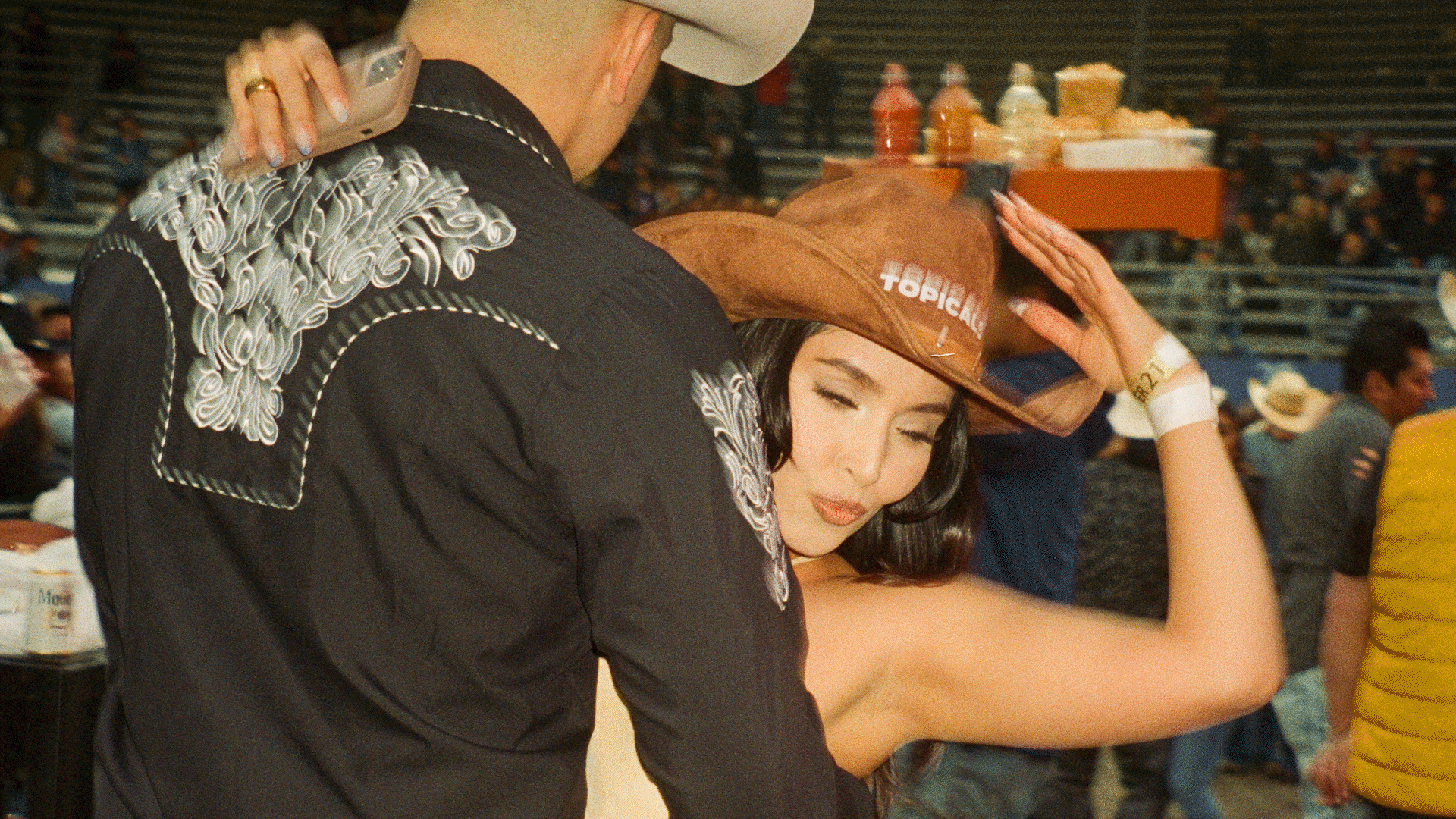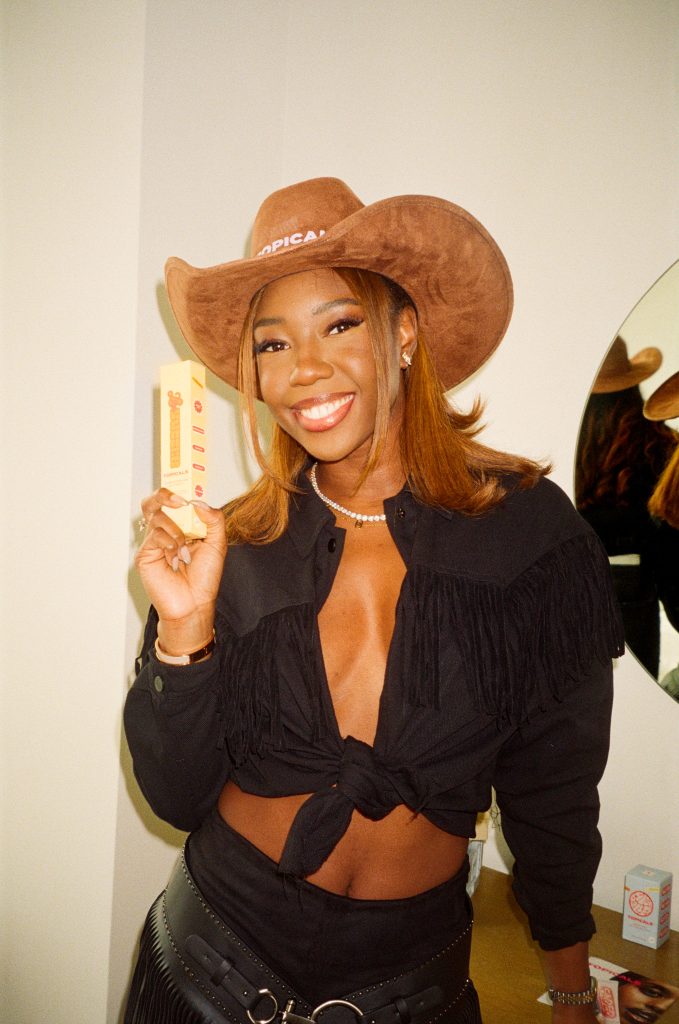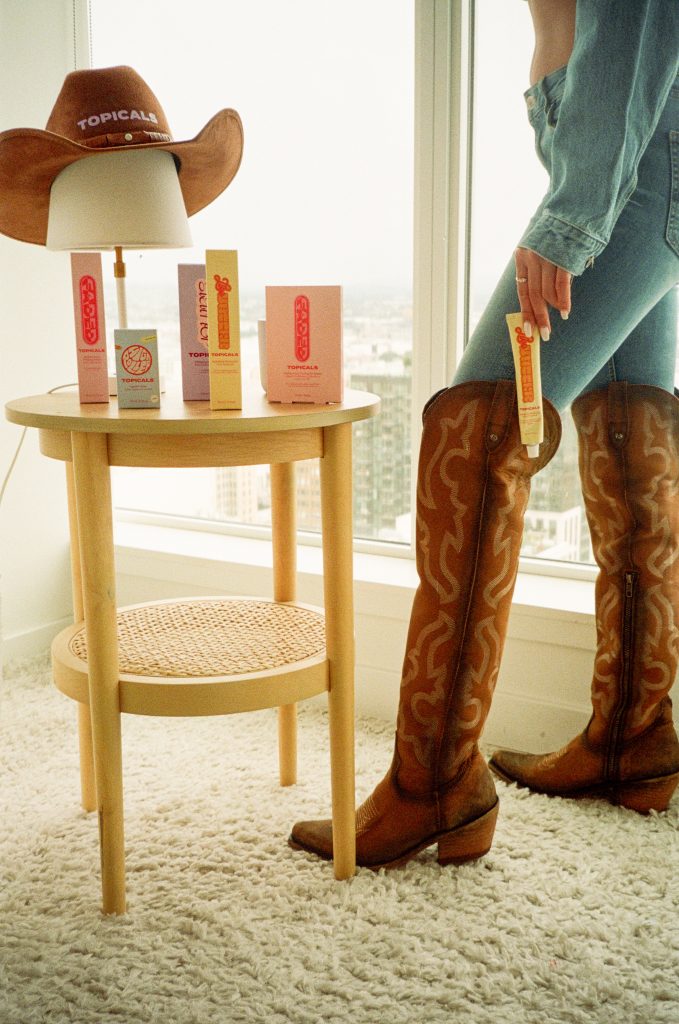The skincare brand Topicals is at the intersection of care and cause. The brand makes skincare products targeting chronic skin conditions like eczema and hyperpigmentation, while recognizing the interplay of diverse skin tones with chronic skin conditions and mental health.
According to Topicals CEO Olamide Olowe’s research, 50% of dermatologists and residents said that their education didn’t prepare them to treat skin of color, and that people with chronic skin conditions are much more prone to anxiety and depression. “If you’re someone who experiences these skin conditions, and you go to a doctor who may not understand your skin tone, [that] adds another layer of mental health issues.” Olowe said. Olowe has been open about her own experiences with chronic skin conditions, sharing that especially as a black woman, seeking help from a dermatologist can often be a fraught experience.
The 27-year old founder is the youngest black woman to ever raise over $10 million in funding, and is investing that money where it counts. Through their Experts Program, Topicals has pledged to educate 10,000 skincare professionals about psychodermatology, and how to treat skin of color by 2026.
- Olowe by Monica Zulema
- Image by Monica Zulema
I know first-hand the emotional strife chronic skin conditions can cause. I grew up in drier midwestern climates, where my Colombian mother treated my chronic eczema with banana peels — standing my little body up on the toilet and rubbing their gooey side all over my skin right before bed. The embarrassment and agony of my ever-present eczema flare-ups persisted throughout my childhood and into adulthood, evolving into varying degrees of anxiety and body dysmorphia that have taken years to unravel. Today, my regimen looks more like white tubs and tubes, and my nightstand is stocked with salves for slugging against the familiar dermatitis flare. Looking back all these years later, the peels may have been effective, but I still can’t bring myself to eat a banana.
Perhaps in rebellion to the endless white-tube rotation had grown accustomed to, Topicals’ product line is tropical; leaning into a calming range of pinks, reds, oranges, and blues. Olowe said Topical’s color palette was initially a hard sell to investors. Before the line launched, she said, “Many people didn’t believe that products that look like ours could be effective or serious. I know that skin conditions [can be] painful, but instead of skincare being cold and clinical or preachy and activist, what if it was fun instead?”
Speaking of fun and inclusivity, last month Topicals invited a group of Latinas to enjoy Quebradita Time, an annual music and dance party at the LA’s Pico Rivera Sports Arena.
Inspired by Jaripeo culture and her own Mexican heritage, Topicals’ Product Marketing Lead Roxana Ontiveros pitched throwing a rodeo themed party. Olowe, an El Paso native who grew up speaking Spanish, was sold. “Quebradita Time unlocked childhood memories of being around that kind of music and going to quinces. With Topicals, we want to be at the center of culture, and we want the people who are leading culture to be able to tell their stories.”
Topicals is smart to focus on the Latino market early in their brand’s come-up. Latinos make up over 18% of spending power in the beauty sector in the United States. According to a report by The Journal of Drugs in Dermatology, Latinos make up the largest share of beauty buyers, however the majority of them feel underrepresented in advertising; 38% percent don’t think skincare brands create products for their age, and 17% don’t believe brands consider their skin tone when launching products. Olowe said, “For me, it’s so interesting to see the lack of Latino representation [in skincare] because that’s who I grew up with. I want to take beauty outside of the bathroom. I’m excited to continue storytelling, making products that people like and that work for them, and to just have fun.”
Gabriella Aguirre is a writer, filmmaker, ceramic artist, and the Editor of LATINA.











